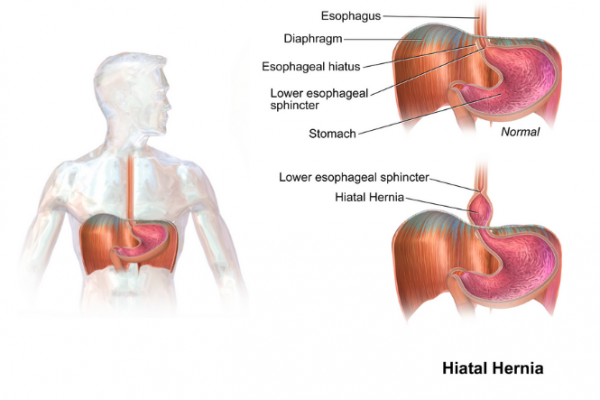A hiatus hernia occurs when one of the organs in your abdomen (tummy) pushes up into your chest area through a hiatus (opening) in your diaphragm.
- Your diaphragm is a large thin muscle between your chest and abdomen.
- Most often, the organ that pushes through the diaphragm to create a hiatus hernia is your stomach, but it can also be your pancreas, spleen or small intestine.
- A hiatus hernia has different causes, symptoms and treatment to an abdominal hernia.
- A hiatus hernia is a common problem. Some studies suggest that up to half of people having tests for indigestion have a hiatus hernia. It occurs more often in men.
- Although you may have a hiatus hernia with no symptoms, it can lead to gastro-oesophageal reflux or GORD. Nearly all patients with severe GORD have a hiatus hernia.
- It's rare for a hiatus hernia to cause problems, but long-term damage to your oesophagus (the tube connecting mouth and stomach) caused by leaking stomach acid can lead to ulcers, scarring and changes to the cells of your oesophagus. This can increase your risk of oesophageal cancer.
Causes
A hiatus hernia tends to occur from your diaphragm weakening as you age or from too much pressure being put on your abdomen. This means those people most likely to get a hiatus hernia are:
- pregnant
- obese, or
- over 50 years of age.



 Image credit: Adapted from Bruce Blaus Wikimedia Commons
Image credit: Adapted from Bruce Blaus Wikimedia Commons


